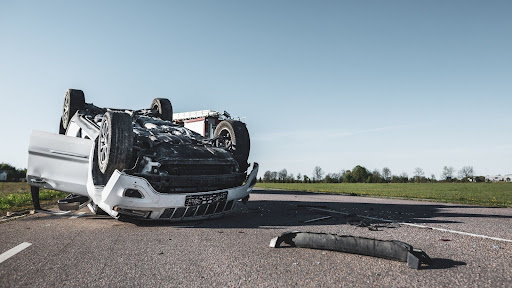A fully loaded semi-truck can weigh up to 80,000 pounds—about 20 times heavier than an average car. When one of these massive vehicles is involved in an accident, the results can be catastrophic. Many of these accidents are preventable and occur because of trucking company negligence. When companies cut corners on safety, fail to train their drivers, or ignore federal regulations, they put everyone on the road at risk and should be held accountable.
If you’ve been in an accident involving a truck, understanding trucking company negligence is crucial. This blog will break down what it is, how it affects your case, and what you can do if you’ve been a victim of a trucking company’s reckless practices.
What Is Trucking Company Negligence?
Trucking companies are responsible for hiring qualified drivers, maintaining their vehicles, and following federal and state safety laws. When they fail to meet these responsibilities, their negligence can lead to serious accidents.
Negligence occurs when a trucking company fails to take reasonable care in ensuring the safety of its fleet, drivers, and the public. This can include hiring unqualified drivers, skipping mandatory maintenance, or pushing drivers to violate hours-of-service laws, leading to dangerous levels of fatigue.
When trucking companies ignore safety for profit, they must be held accountable.
When Is a Trucking Company at Fault in an Accident?
A trucking company can be held responsible for an accident if their negligence directly contributed to the crash. Some common situations where a company is at fault include:
- Negligent Hiring – Hiring drivers without proper background checks or with a history of reckless driving.
- Poor Maintenance – Failing to inspect and repair vehicles, leading to brake failures, tire blowouts, or engine malfunctions.
- Forcing Overworked Drivers – Encouraging or pressuring drivers to exceed their federally mandated driving hours, leading to fatigue-related crashes.
- Improperly Loaded Cargo – Not securing cargo correctly, leading to rollovers or lost loads on the road.
- Ignoring Federal Safety Regulations – Violating laws meant to keep trucks and drivers safe.
If any of these apply to a trucking accident, the company could be legally liable for your injuries and damages.
How Does Trucking Company Negligence Affect Your Accident Case?
If a trucking company’s carelessness led to your accident, it could mean the difference between a small settlement and a significant payout for medical expenses, lost wages, and pain and suffering.
Proving negligence requires:
- Thorough investigation into the truck’s maintenance records and driver history.
- Expert testimony to show how the company’s actions contributed to the crash.
- Legal strategies to hold the trucking company accountable.
Because trucking companies have teams of lawyers, it’s important to have experienced legal representation on your side.
[CTA “Get my free consultation” button]
Common Examples of Trucking Company Negligence
Trucking companies cut corners to save money, often at the expense of safety. Here are some of the most common ways they act negligently:
Negligent Hiring Practices
A trucking company should only hire qualified drivers with clean driving records. However, some companies skip background checks or ignore a driver’s history of DUI charges, speeding, or reckless driving.
Lack of Proper Training
Even licensed truck drivers need training to safely handle large vehicles. Some companies fail to provide proper instruction on things like maneuvering, braking distances, and emergency handling.
Failure to Maintain Vehicles
Truck accidents often happen due to poorly maintained vehicles. If a company fails to inspect and repair its fleet, it can lead to:
- Brake failures
- Tire blowouts
- Steering malfunctions
- Engine problems
Forcing Drivers to Violate Hours-of-Service Rules
Federal law limits truck drivers to 11 hours of driving after 10 hours off-duty. However, some companies push drivers to exceed this limit, leading to extreme fatigue and slow reaction times.
Improperly Loaded or Overloaded Trucks
Cargo must be loaded and secured properly. Overloaded trucks are harder to stop, and unbalanced loads can lead to rollovers or cargo spills.
Violating Federal and State Regulations
Trucking companies must follow regulations from the Federal Motor Carrier Safety Administration (FMCSA). When they violate these laws, they increase the risk of accidents.
Some of the most common violations include:
- Hours-of-service violations – Forcing drivers to work beyond the legal limits.
- Skipping inspections – Failing to conduct proper vehicle maintenance.
- Ignoring drug and alcohol testing – Allowing drivers to operate under the influence.
If a company is found to have broken these laws, they could be liable for damages in an accident case.
How Can Improper Loading Contribute to an Accident?
A truck’s cargo must be balanced and secured. If it’s not, the risks include:
- Rollovers – Uneven weight distribution can make a truck unstable, especially on curves.
- Lost Cargo – Unsecured items can fall into traffic, causing crashes.
- Brake Failures – Overloaded trucks strain brakes, leading to runaway trucks.
If improper loading played a role in your accident, the company responsible for loading the truck may be held liable.
How Lowe Law Group Can Help
At Lowe Law Group, we understand how devastating truck accidents can be. If you or a loved one has been injured due to trucking company negligence, you deserve justice. Our team of experienced personal injury attorneys will fight to hold negligent trucking companies accountable and get you the compensation you deserve.
Don’t face the trucking company’s legal team alone. Lowe Law Group is here to help you win your case and move forward with your life. Contact us today for a free consultation and find out how we can help you get the justice you deserve.








